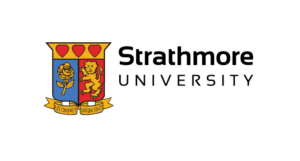Partners
Sorbonne Université (Coordinator, France)
https://www.sorbonne-universite.fr/en
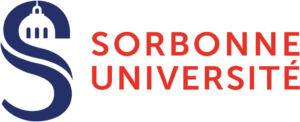
Sorbonne University (SU) is a multidisciplinary, research-intensive, world-class university. Located in the heart of Paris, with a regional presence, it is committed to the success of its students and to meeting the scientific challenges of the 21st century. Through the strength of its 55,000 students, 7,300 academic researchers and partner researchers, and 3,900 administrative and technical staff, Sorbonne University promotes diversity, creativity, innovation and openness to the world.
SU is the coordinator of the DIGITAfrica project and is participating through the LIP6 which is a joint research laboratory funded by both SU and the French National Centre for Scientific Research (CNRS) addressing all fields of CS & EE.
SU has pioneered and led the design and operation of large-scale test platforms, including PlanetLab, OneLab, FIT, Fed4Fire and now SLICES-RI (ESFRI Roadmap 2021).
SU is also strongly involved in the dialogue between the EU, the US (EMPOWER project) and other international partners on the cooperation in the domain of experimental facilities.
Sorbonne University is the coordinator of the DIGITAfrica project and will lead the work related to the sustainability of the designed pan-African DIGIT Research Infrastructure. To do so, the consortium will work on the creation of a DIGITAfrica network of African Research and innovation nodes, with a MoU (under the SU’s leadership) and a research agenda between African countries and with SLICES and SoBigData.
SU will also take the lead in tasks related to education such as the one about the articulation with the SLICES/SoBigData Academy and theNetworkingChannel or the one on qualifications and micro-credentials.
Barcelona Supercomputing Center (Spain)

The Barcelona Supercomputing Center (BSC) stands as one of Europe’s premier public research institutions, celebrated for its cutting-edge work in high-performance computing (HPC), artificial intelligence (AI), and big data analytics. Since its establishment in 2005, BSC has cultivated a diverse and talented team of over 1,000 researchers and staff, representing more than 40 nationalities.
BSC is the proud home of MareNostrum 5, one of the most powerful supercomputers globally, enabling groundbreaking research and innovation across a range of disciplines. The center’s efforts are concentrated in five key fields:
- Computer Sciences
- Life Sciences
- Earth Sciences
- Computer Applications in Science and Engineering
- Computational Social Sciences and Humanities
With a portfolio boasting over 150 research projects funded through competitive public and private sources, BSC continues to lead advancements that shape the future of science and technology.
BSC main activities in DIGITAfrica are:
- Contribution to the assessment of Research Infrastructure (RI) needs and gaps (WP1)
- Development and testing of computational tools and platforms for pan-African RI services (WP2)
- Design and delivery of training programs and workshops to support capacity building in Digital Sciences (WP4)
- Contribution to the co-creation of a common research agenda aligned with pan-African priorities (WP5)
- Dissemination of DIGITAfrica outcomes to demonstrate the potential of digital infrastructures in driving societal change (WP6).
Consiglio Nazionale delle Ricerche (Italy)
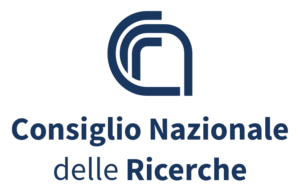
The Consiglio Nazionale delle Ricerche (CNR) plays a significant role in the DIGITAfrica project by actively participating in six Work Packages:
- In WP1: Needs and Gaps, CNR contributes to consultation workshops and the analysis of RI capacities in Africa.
- Within WP2: Initial design and deployment, CNR contributes to requirements gathering, linking with the GreenDIGIT project, and the initial design of the infrastructure.
- For WP3: African RI BluePrint, CNR contributes to testing the concept of the BluePrint and the assessment of the BluePrint application and lessons learned.
- In WP4: Capacity building and education, CNR contributes to identifying priority needs, articulating with the SLICES/SoBigData Academy and TheNetworkingChannel, and training activities.
- Regarding WP5: Sustainability, CNR leads the task on proposing a common research agenda and contributes to the design study for an EU-African DIGIT RI.
- For WP6: Dissemination, Exploitation and Communication, CNR contributes to communication and dissemination activities and synergies with civil society and industry.
Institut national de recherche en Informatique et automatique (France)
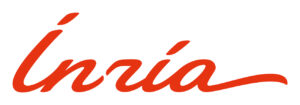
INRIA (Institut National de Recherche en Informatique et Automatique) holds a crucial position in the DIGITAfrica project, particularly concerning the initial design and deployment of the envisioned pan-African research infrastructure.
INRIA is the lead beneficiary for Work Package 2: Initial design and deployment. Within this work package, INRIA takes the lead in the task for Proof of concept deployment. which is vital for validating the initial design by determining the necessary resources and conditions, drawing on the experience of the SLICES and SoBigData research infrastructures.
Furthermore, INRIA actively contributes its expertise to numerous other work packages:
- WP1: Needs and Gaps, in Consultation workshops.
- WP2: Initial design and deployment, in requirements gathering, and Initial design.
- WP3: African RI BluePrint, contributing the development, testing, data management, and assessment of the BluePrint.
- WP4: Capacity building and education, contributing to the task of Training courses, workshops, and winter/summer schools.
- WP5: Sustainability, contributing to the Design study for an EU-African DIGIT RI.
- WP6: Dissemination, Exploitation and Communication, contributing to Communication and Dissemination Activities.
University of Thessaly (Greece)
University of Thessaly (Greece)
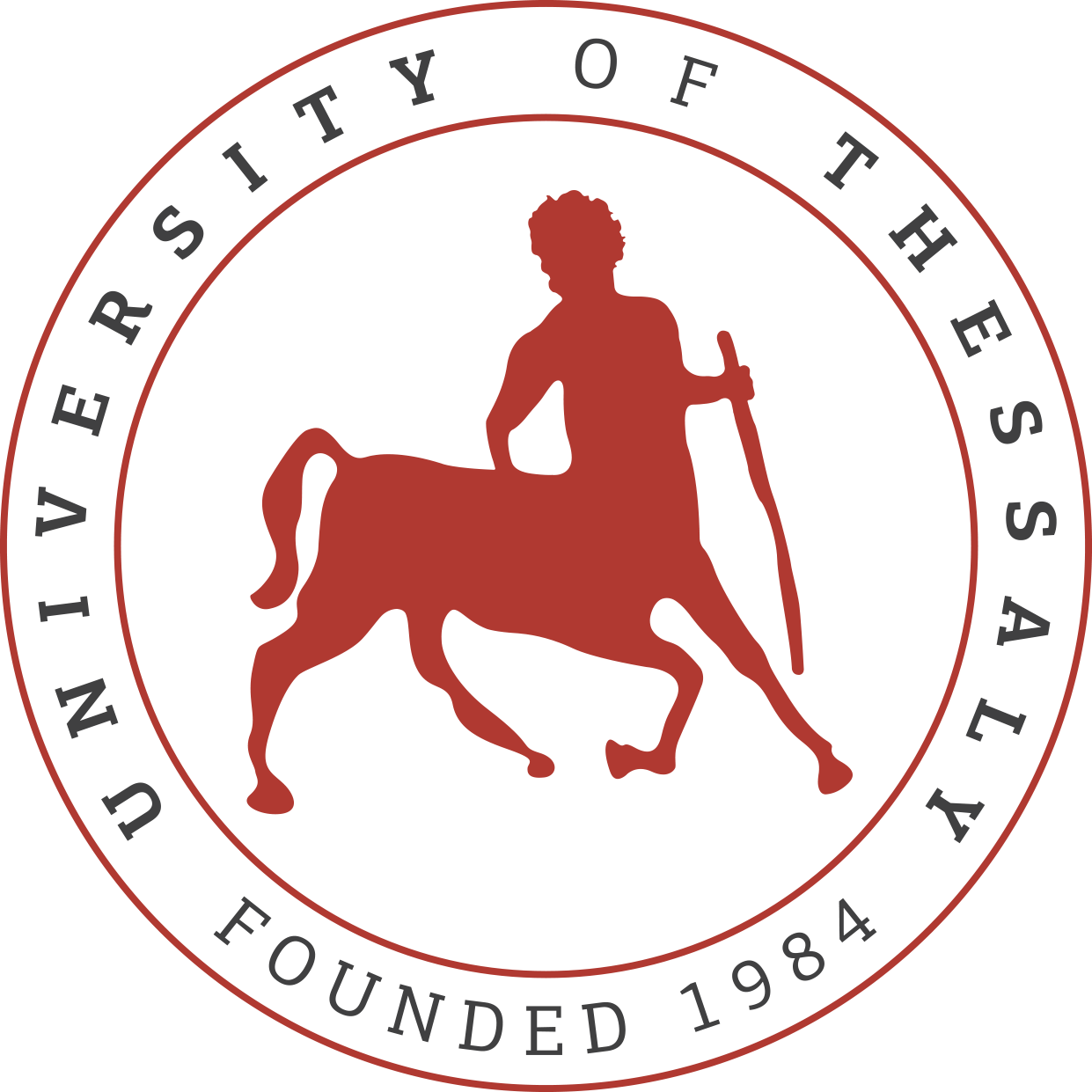
Strathmore University (Kenya)
Strathmore University is a leading institution in Kenya, renowned for its commitment to academic excellence, research, and community engagement. Driven by a mission to promote innovation, ethical leadership, and sustainable development, the University empowers students and communities through transformative education, interdisciplinary collaboration, and strategic partnerships. Notable initiatives include impactful projects led by its schools and research centers. A notable example is the capacity building and awareness creation project, which resulted in the development of a certificate course in data protection. This certificate serves as a micro credential for the e – governance course, developed collaboratively by the School of Computing and Engineering Sciences, Strathmore Business School, and Taltech University in Estonia.
Strathmore University will be co-leading work package 4 in the DIGITAfrica project, focusing on identifying priority needs, conducting training sessions, and developing micro credentials to enhance research and innovation capacity across Africa. As a leader in this area, STR is key in equipping researchers and professionals with the skills needed to leverage the project’s outcomes effectively.
The university’s effort in WP4 will be aimed at developing a flexible framework for capacity building that ensures inclusivity by considering both human and technological perspectives, especially given the multilingual nature of the continent. This includes creating tailored training approaches that accommodate Francophone and Anglophone audiences, using innovative methods like short videos for accessible and engaging content delivery.
Additionally, STR contributes to other key areas of the project, in Work Package 1, the university participates in analyzing research infrastructure capacities and identifying research communities across Africa. For Work Package 2, it aids in gathering requirements and deploying proof–of–concept solutions. Under Work Package 3, STR supports the deployment and testing of Africa research Infrastructure blueprint and manages data to ensure compliance and accessibility.
Furthermore, in Work Package 5, the university plays a role in developing a common research agenda and drafting the DIGITAfrica Memorandum of Understanding to align stakeholder’s goals. Lastly, Strathmore supports Work Package 6 by contributing to communication and dissemination efforts, engaging civil society and industry, and ensuring the project’s outcomes are impactful and widely adopted.
Technische Universität Berlin (Germany)

Technische Universität Berlin (TU Berlin), located in Germany’ capital, is one of the prestigious research institutions. With strong engineering and computer science programs and a diverse international community, TU Berlin fosters innovation and interdisciplinary collaboration and offers a vibrant academic environment and numerous opportunities for global partnerships.
The Chair of Architecture of Intermediary Nodes (AV) / Next Generation Networks in the EE&CS Department at TU Berlin is funded by the Fraunhofer FOKUS Institute and closely collaborates with the NGNI business unit. Our main research activities are centered on telecom platforms, testbeds, and toolkits for 5G/6G networks. A long-term partnership with the University of Cape Town, South Africa, drives our research towards an Open6G for all vision, supported by initiatives like openrit-6g.org and open6gnet.org.
As part of the DIGITAfrica Project, TUB aims to strengthen collaboration with African partners, combining our efforts and expertise to advance the design and development of a sustainable research infrastructure blueprint. TUB/AV will contribute to assessing the needs and gaps in RI services (WP1), designing and deploying initial tools for RI services (WP2), creating the African RI Blueprint (WP3), and providing capacity building and education through training courses, seminars, and summer/winter schools (WP4). Additionally, they will assist in proposing a sustainable common research agenda (WP5).
Université Cheikh Anta Diop de Dakar (Senegal)
Université Cheikh Anta Diop de Dakar (Senegal):
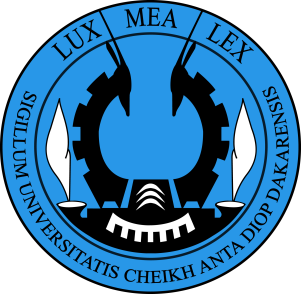
Founded in 1957, Université Cheikh Anta Diop (UCAD) is the largest and most prestigious higher education and research institution university in French-speaking West Africa. UCAD is organized with 06 faculties, 08 schools, 07 doctoral programs and counts 88,039 students, 1464 academic-researchers staff, 1591 administrative staff, and 13 nationalities. The researchers participating in this project have leading expertise in projects related to bringing network convergence to connect the unconnected rural and underserved areas for equity and inclusion in online education and Internet access. They are involved in many relevant projects such as:
- Contributing to connecting the unconnected, sustainable communication networks
- Digital transformation focusing on digitization of higher education and equity for digital effective education in Senegal
- Management of pastoral mobility and artisanal fishing based on Internet of Things and device-to-device communications improving quality life in underserved communities
Role in the Project:
UCAD main activities in DIGITAfrica are:
- Contributing to identify relevant research communities in Africa in Digital sciences
- Prototyping and deploying pan–African RI
- Identifying the priority needs for specific capacity building and education of different stakeholders
UCAD co-leads Work Package 3 (African RI advanced deployment and integration). UCAD will also lead the task (T1.3) related to the Identification of relevant research communities in Africa in Digital Sciences) and contribute to several other tasks within DIGITAfrica.
Université de La Manouba (Tunisia)
Université de La Manouba (Tunisia)
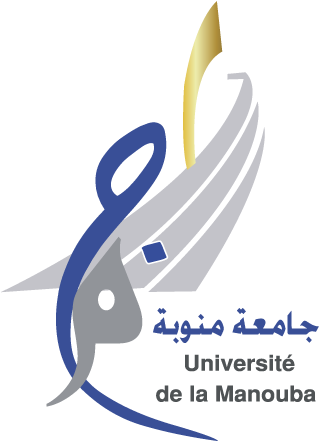
The University of Manouba (UMA), founded in 2000, is a public training and research establishment under the supervision of the Ministry of Higher Education and Scientific Research.Together with the majority of its institutions, it occupies a large campus covering more than 30 hectares in a town in the north-western suburbs of Tunis (Manouba Governorate).UMA is a multi-disciplinary university with a student body of 17,341, including 292 foreign students. It awards 160 diplomas at different levels of training, including 01 preparatory cycle for language studies, 31 Licences, a preparatory cycle for language studies, 75 Research and Professional Masters, 02 National Engineering Diplomas, 01 National Diploma in Veterinary Medicine and 16 Doctorates through 3 Doctoral Schools (3) and 33 research structures: Laboratories and Units.The AMU also organizes an agrégation competitive examination in Arabic language and literature, French language and literature and English language and literature, as well as a competitive examination in public accounting.By 2023, UMA will have 1206 permanent research professors, providing training through research in addition to their teaching and supervision duties.This community of teacher-researchers, supported by 726 ATOS staff, including administrators, engineers, technicians and workers, covers four disciplines: 1 / Humanities and Information Sciences, 2 / Economics and Management, 3 / Computer Science and Arts, and 4 / Life and Environmental Sciences. Manouba University’s progressive development has given it the multi-disciplinary approach and generational balance it needs to ensure its continued existence. It brings together prestigious and mature institutions, often unique on a national scale, with rich academic traditions, as well as young, dynamic and proactive institutions working in the emerging fields of the future.
Aware of the importance of internationalizing training and research, the AMU has consistently forged close and fruitful relationships with a wide range of institutions, centers, organizations and universities as part of its international collaboration. In recent years, it has been involved in a large number of targeted cooperation actions and structuring projects with national and international partners (72 agreements with 28 partner countries, 30 inter-institutional Erasmus+ mobility agreements, 7 Key Action 2 Erasmus+ capacity-building projects, 4 of which are currently underway, 1 Horizon Europe project and 1 PRIMA project, currently underway).
The University of Manouba (UMA) in Tunisia is a national leader in computer science and is renowned for its excellence in research in informatics and technologies fields . Lead in Computer sciences studies, the National School of Computer Sciences (ENSI) award the National Engineering Diploma and plays a key role as a member of UMA and an executing party within the DIGIT-Africa project.
ENSI hosts a research and innovation center that includes four research structures and an academic incubator, the ENSI Innovation Hub. Two of its laboratories are involved in the DIGIT-Africa project: the CRISTAL Research Lab, specializing in networking, IoT, cybersecurity, image processing, artificial intelligence (AI), and digital health, and the RIADI Research Lab, focusing on artificial intelligence, data science, and software engineering.
Role in the Project:
UMA’s Role in DIGITAfrica : UMA contributes to nearly all WPs (1–6) :
WP Co-Leadership Roles:
WP1: “Research Infrastructure (RI) Needs and Gaps” with CNR
WP5: Sustainability with SU
Task Leadership:
Task 1.2: Analysis of RI capacities in Africa
Task 5.3: Design study for an EU-African DIGIT RI
Strong Involvement in Deployment and assessment:
Proof of concept deployment.
Testing the BluePrint concept, including its assessment and lessons learned.
Capacity Building, Dissemination & Workshops:
Fully engaged in WP4: Capacity building and education.
Active in WP6: Dissemination, Exploitation, and Communication.
Will organize of a consultation workshop (Needs and Gaps Analysis).
Université de Ngaoundéré (Cameroon)

One of the largest universities in Central Africa with 22 344 students; 625 academic-researchers staff; 499 administrative staff; 10 nationalities; 05 Faculties and 05 Engineering Schools including 75 departments and 123 Training programs. UN is involved in many projects/partnerships with UE and other African countries including Erasmus Mundus programme KITE. UN has been involved in a long-lasting DAAD Sub-related partnership with German Universities including specialized project in computer science funded by BMBF. UN has a strong technological background on Agriculture, Livestock, Mining, and other natural resources management.
University of Ngaoundere (UN) makes the following main contributions to the DIGITAfrica project:
In Work Package 1: Needs and Gaps, UN contributes to the analysis of RI capacities in Africa and the identification of relevant research communities in Africa in Digital Sciences.
For Work Package 2: Initial design and deployment, UN contributes to the proof of concept deployment.
Work Package 3: African RI BluePrint sees UN taking a leading role in testing the concept of the BluePrint. They contribute to translating the analysis into appropriate applications for different stakeholders across Africa.
Within Work Package 4: Capacity building and education, UN contributes to the identification of the priority needs. They also participate in training courses, workshops, and winter/summer schools.
In Work Package 5: Sustainability, UN contributes to the proposition of a common research agenda and the design study for an EU-African DIGIT RI. They also contribute to the preparation of the DIGITAfrica MoU.
Work Package 6: Dissemination, Exploitation and Communication sees UN in a co-leading role alongside MI Mandat International. UN contributes to communication and dissemination activities and takes the lead in the liaison with Regional Authorities and Recommendations, aiming to raise awareness and foster collaboration with policymakers in both the EU and Africa.
As a project partner, UN is part of the General Assembly in Work Package 7: Management, contributing to the overall strategic direction and decision-making of the project.
Universiteit van Amsterdam (Netherlands)
University of Amsterdam

University of Cape Town (South Africa)

The University of Cape Town (UCT) is South Africa’s oldest higher education institution and a leading African university, recognised for its commitment to academic excellence, transformative research, and societal impact. UCT is renowned for its expertise in diverse fields, including telecommunications, digital sciences, and innovative technologies. Its activities focus on fostering cutting-edge research, building collaborative networks, and advancing education, particularly in digital infrastructure, cloud computing, and artificial intelligence. UCT’s mission aligns with addressing local and global challenges through innovation, inclusivity, and sustainability, making it a key partner in initiatives promoting research, education, and development.
The University of Cape Town (UCT) plays a pivotal role in the DIGITAfrica project by leveraging its expertise in telecommunications and cutting-edge digital network technologies. UCT co-leads Work Package 2 (WP2) on Initial Design and Deployment, contributing to the foundational design and implementation of the pan-African digital research infrastructure. It also actively participates in Work Package 1 (WP1) to identify needs and gaps, Work Package 3 (WP3) to develop the African Research Infrastructure Blueprint, Work Package 4 (WP4) to address priority needs and provide training and education, and Work Package 5 (WP5) for policy engagement and advocacy.
UCT is responsible for hosting the in-person kick-off meeting and the first stakeholder consultation workshop as part of WP1, reinforcing its commitment to fostering collaboration and stakeholder engagement. Specializing in advanced broadband communication networks, including 5G, 6G, Software-Defined Networking (SDN), and Network Function Virtualisation (NFV), UCT contributes to developing network technologies aimed at addressing Africa’s unique challenges in rural connectivity, telemedicine, and smart applications. These efforts align with the African Union’s Science, Technology, and Innovation Strategy (STISA-2024), driving innovation and digital transformation across the continent.
Mandat International (Switzerland)

Mandat International is a Swiss-based foundation with a global focus on fostering international cooperation and promoting sustainable development. Since its establishment, it has been deeply committed to facilitating multilateral collaboration between organisations, countries, and international institutions. With extensive experience in supporting and managing EU-funded projects, MI excels in advancing digital transformation, particularly in domains such as privacy, security, data management, and digital ethics. It is also dedicated to the promotion of inclusive practices, gender equality, and the empowerment of underserved communities. Mandat International serves as a hub for knowledge sharing, stakeholder engagement, and policy advocacy, leveraging its network to amplify global outreach and impact.
Mandat International plays a central role in the DIGITAfrica project by co-leading Work Package 6 on Dissemination, Exploitation, and Communication with UN. Its responsibilities include the implementation of a comprehensive communication strategy to maximise awareness and engagement, as well as overseeing the maintenance of the project website and social media channels.
Additionally, MI manages the dissemination of project results to key stakeholders, including policymakers, research institutions, industry, and civil society, using tailored campaigns, newsletters, and multimedia formats such as videos and webinars. As part of its exploitation efforts, it collaborates with partners to ensure that the project’s outputs have a lasting societal and academic impact. This includes engaging with regional authorities in Africa and Europe to foster cooperation and adoption of the project’s research infrastructure. MI also ensures compliance with open science principles and data management regulations, creating a Data Management Plan to guarantee adherence to FAIR principles. Through its leadership in the domain, MI will ensure that DIGITAfrica establishes a strong presence in the digital sciences landscape with a strong foundation for a sustainable, pan-African research infrastructure.
